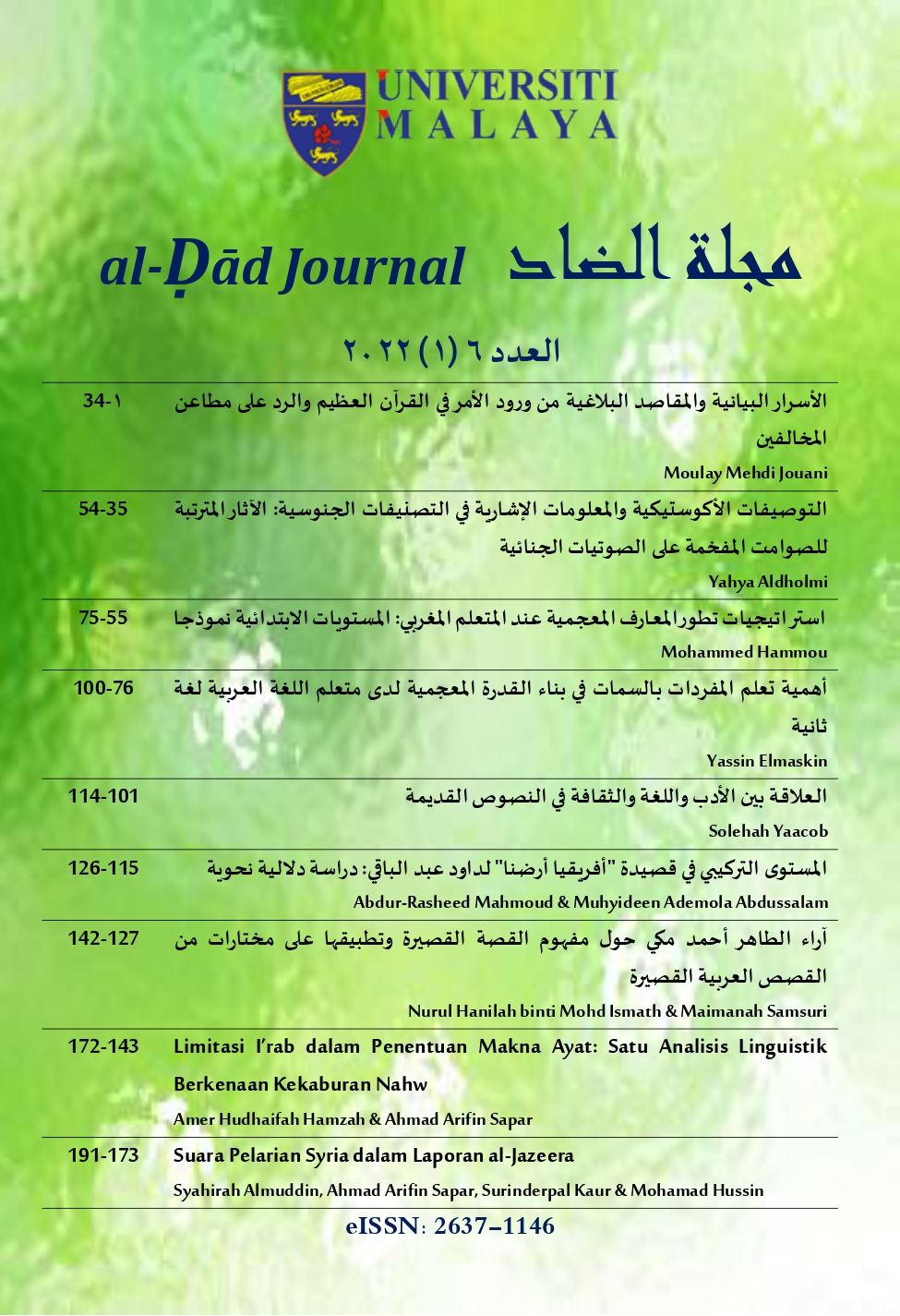Acoustic Characterization and Indexical Information in Gender Classification: Implications of Emphatics for Forensic Phonetics Phonetics
Main Article Content
Abstract
This study is an attempt to examine the hypothesis that, compared to plains, emphatics negatively affect the bleed-through of indexical information associated with the gender of male and female talkers for Arabic listeners. In a preliminary experiment, Arabic male and female participants were asked to identify the consonant type of the auditorily presented CV(V) and (V)VC fragments/monosyllables as either plains or emphatics. The participants were generally able to identify both types of consonants successfully and accurately. In the main experiment, Arabic speakers and non-Arabic speakers (both male and female) were asked to classify the gender of the male and female Arabic native talkers from the stimuli used in the first experiment. The results of this second task varied between non-Arabic speakers, who surprisingly committed fewer errors in classifying talker gender, and Arabic speakers, who committed more errors. The errors committed by the Arabic speakers were observed in the emphatics condition, especially when the talker was female. These two patterns can be taken as collective evidence that the acoustic characteristics of emphatics may bias listeners’ perception of indexical information towards the male voice, which makes talker gender classification more difficult, especially in critical scenarios such as in forensic phonetic casework.
Keywords: acoustics, emphatics, forensic phonetics, indexical information, gender classification
